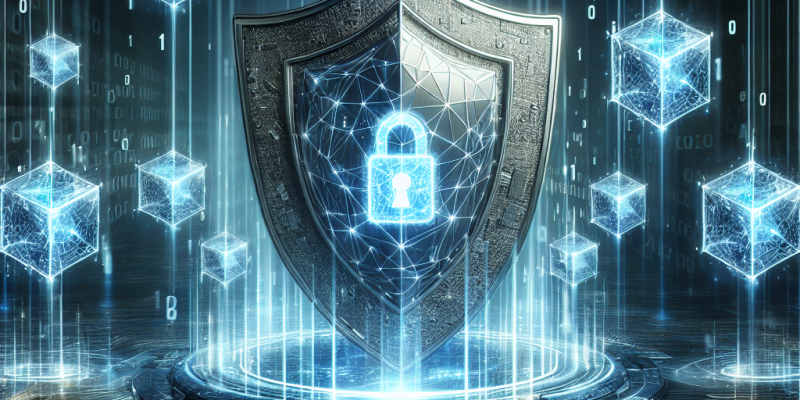The Role of Blockchain in Strengthening Cybersecurity by 2025

As we move further into 2025, the importance of cybersecurity has become clearer than ever. With the rapid growth of digital technology, cyber threats have increased dramatically. In this context, blockchain technology has emerged as a promising solution to enhance security in various sectors. This article explores how blockchain is influencing cybersecurity and what we can expect in the near future.
Understanding Blockchain Technology
Blockchain is a digital ledger that records transactions across many computers. This ensures that the information cannot be changed retroactively without altering all subsequent blocks. This feature makes it very secure. In contrast to traditional systems, where data can be altered easily, blockchain provides a high level of integrity and transparency.
Decentralization and Data Security
One of the main advantages of blockchain is decentralization. In traditional systems, data is often stored in a central location, making it a prime target for hackers. However, in a blockchain system, data is distributed across a network of computers. This makes it much harder for attackers to compromise the system. By 2025, more organizations are expected to adopt decentralized storage systems, reducing the risks associated with data breaches.
Authentication and Identity Management
Identity theft remains a significant concern. Blockchain can simplify and secure identity verification processes. By storing personal information on a blockchain, users can control access to their data. Smart contracts, which are self-executing contracts with the terms directly written into code, can automate verification processes. This reduces the chances of human error and enhances trust in online transactions.
Secure Transactions
Especially in the financial sector, blockchain is changing how transactions are conducted. Blockchain’s transparent nature allows all parties to view transaction histories, making it harder for fraud to occur. As more financial institutions adopt blockchain solutions by 2025, we can expect a decrease in fraudulent activities.
Smart Contracts
Smart contracts play a crucial role in cybersecurity. They automatically execute actions when certain conditions are met, reducing the potential for human error. By utilizing smart contracts, organizations can create more secure systems for managing agreements and transactions. This can be observed in industries such as real estate, insurance, and supply chain management.
Challenges and Considerations
Despite its promising advantages, there are still challenges to address. Scalability remains a concern, as blockchain networks can slow down when handling a high volume of transactions. Additionally, regulatory issues must be resolved to ensure widespread adoption. Organizations must stay compliant with laws while integrating blockchain technologies into their systems.
The Future of Cybersecurity with Blockchain
Looking ahead, it is clear that blockchain will play a significant role in strengthening cybersecurity by 2025. As technologies evolve, we can expect innovations that will make blockchain even more effective at combating cyber threats. Companies across various industries will likely invest in blockchain solutions to safeguard their data and enhance trust with their customers.
Conclusion
In summary, blockchain technology is set to revolutionize cybersecurity by providing more secure, transparent, and decentralized systems. While challenges exist, the benefits outweigh the risks, making blockchain a key player in the future of cybersecurity. By 2025, organizations that embrace these innovations will be better positioned to protect their data and combat the ever-evolving landscape of cyber threats.














